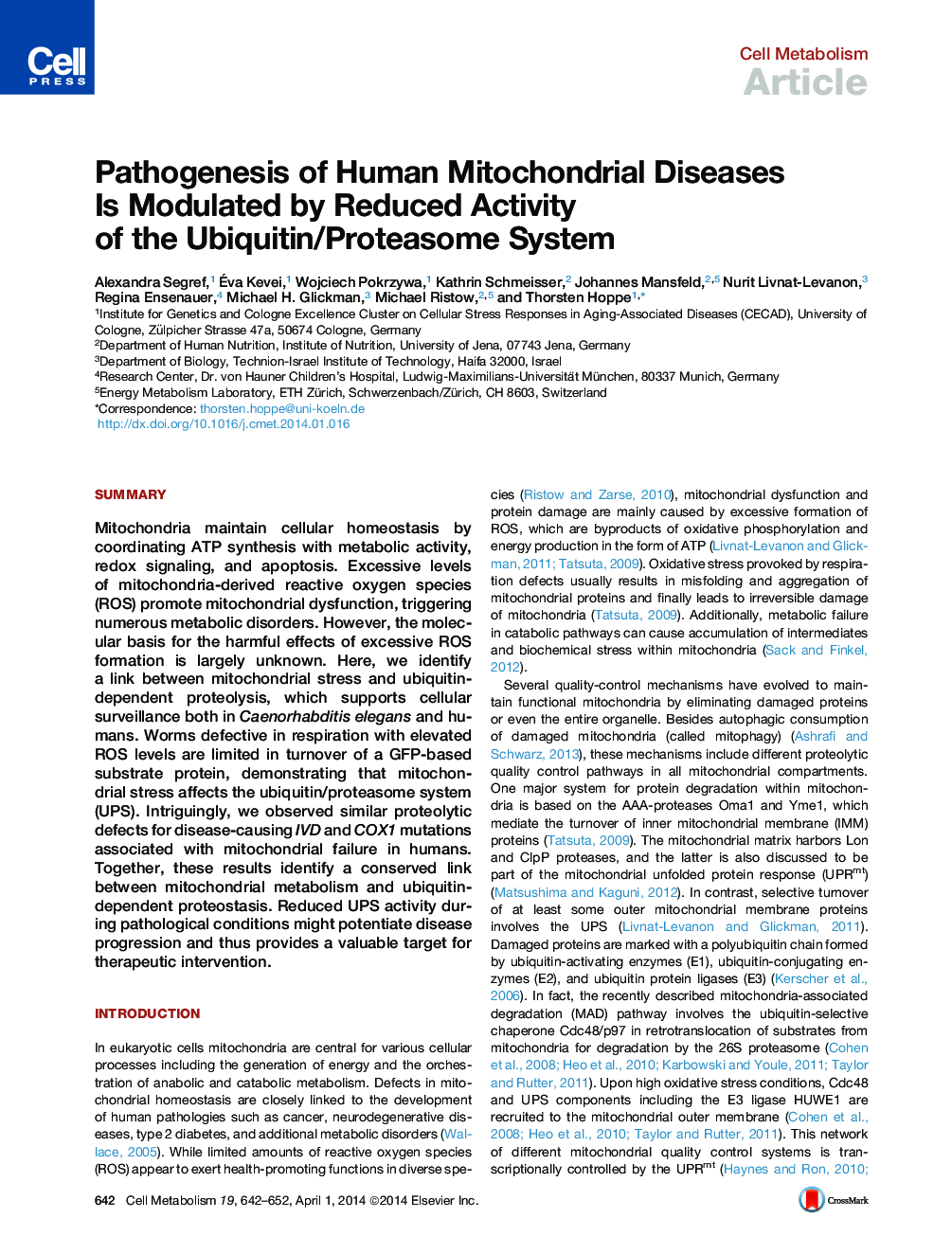| Article ID | Journal | Published Year | Pages | File Type |
|---|---|---|---|---|
| 2792666 | Cell Metabolism | 2014 | 11 Pages |
•Elevated ROS through mitochondrial failure affects UPS-mediated protein turnover•ROS-induced protein degradation defects can be suppressed by antioxidants•Disease-underlying mitochondrial mutations display UPS defects in humans
SummaryMitochondria maintain cellular homeostasis by coordinating ATP synthesis with metabolic activity, redox signaling, and apoptosis. Excessive levels of mitochondria-derived reactive oxygen species (ROS) promote mitochondrial dysfunction, triggering numerous metabolic disorders. However, the molecular basis for the harmful effects of excessive ROS formation is largely unknown. Here, we identify a link between mitochondrial stress and ubiquitin-dependent proteolysis, which supports cellular surveillance both in Caenorhabditis elegans and humans. Worms defective in respiration with elevated ROS levels are limited in turnover of a GFP-based substrate protein, demonstrating that mitochondrial stress affects the ubiquitin/proteasome system (UPS). Intriguingly, we observed similar proteolytic defects for disease-causing IVD and COX1 mutations associated with mitochondrial failure in humans. Together, these results identify a conserved link between mitochondrial metabolism and ubiquitin-dependent proteostasis. Reduced UPS activity during pathological conditions might potentiate disease progression and thus provides a valuable target for therapeutic intervention.
Graphical AbstractFigure optionsDownload full-size imageDownload high-quality image (167 K)Download as PowerPoint slide
